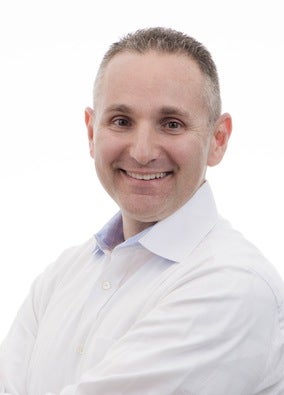As executive vice president, general counsel, and secretary of SolarCity, Seth Weissman has been a dedicated advocate for and champion of his team. With a strong commitment to diversity, Weissman has ensured that women and minorities are both hired and promoted within his organization. Weissman was named the Silicon Valley Business Journal 2015 Corporate Counsel of the Year – Diversity Champion. Weissman began working at SolarCity as its first full-time lawyer back in 2008, grew the team to over 60 reports, and shares his key “lessons learned” when it comes to building a winning team.
Lessons on hiring
• The single biggest mistake is to hire yourself. Everyone has their own strengths and challenges and you don’t want to hire people who merely mirror yours. “I don’t want to manage myself,” Weissman says. “The single most important thing I look for is someone who has different strengths and challenges so they complement mine.”
• To determine your strengths and challenges, turn to those closest to you. Your significant other, close friends, and trusted colleagues are likely to be better at identifying them than you are. They don’t have blind spots when it comes to who you are.

• There are three indicators of whether someone is the right hire for your team: intelligence quotient (IQ), emotional quotient (EQ), and fit. All three matter, but in Weissman’s opinion most lawyers and law firms focus too much on IQ and leave EQ and fit behind. After a certain point, IQ is worthless if you can’t harness all of that brainpower in a constructive way making you effective with clients and coworkers.
• Weissman looks for these key fit indicators: humor, humility, and resilience. You should determine what yours are based on what is working in your company now or what has worked for you in the past.
• Make a conscious effort to look for diverse candidates. “We all have implicit biases, and most of them set us up to look for what’s familiar. Since nothing is more familiar than ourselves, if you want diversity, it’s not just going to happen organically. You have to make an effort to explicitly look for it,” Weissman explains.
• While interviewing, ask every candidate as many of the same questions as possible to avoid implicit bias. Weissman suggests focusing on EQ-related skills, such as if a candidate understands him or herself, if they are present, if they are able to read those around them and, just as importantly, if they can quickly adapt behaviors to any given situation.
• Really connect with your candidates without merely going over their past job history. Find out who they are as people. “This may mean learning that they have unique hobbies, stories from their childhood, or things they are passionate about that have nothing to do with work. These are often-times the kinds of stories that really help you understand what makes someone tick and whether they’ll fit in with your team,” Weissman reveals.
So what are Weissman’s favorite interview questions?
• What, in your mind, is the difference between wisdom and intelligence?
• Would you say you’re wiser than your peers?
• Do you rely more on your intelligence or wisdom?
• What in your life, that’s not on your resume, has made you who you are today?
Supporting, mentoring, and retaining talent
• Your team needs to feel that all your success depends on theirs. From a practical perspective, “You need to share the joy and take the blame. Always. My job is to make my team members’ lives better. At the end of the day, I need them more than they need me,” says Weissman.
• Repeat and stay consistent. Whatever the most important messages are, repeat them often to make sure everyone on your team actually hears and internalizes them.
• Work with an executive coach and hire them for key members of your team. Though it may impact the budget, it’s worth the investment to create a safe space where your team can have the most difficult conversations. This is particularly true for team members that may not feel as comfortable telling you directly what they need to grow and/or feel valued. A coach gives them the opportunity to practice that conversation first. “The reality is there are some things I simply can’t help someone with. I have a coach work with all my direct reports to identify growth areas and to supplement the areas where I am not able to provide the tools necessary for growth. This works because we have a complete vow of confidentiality between the coach and the team member, and because the process is designed as an investment in my people. I can’t stress enough how great the results of this process have been. Not only does my team feel invested in the process, but the executive coach can help me be a better leader by letting me know what I need to do to help each person meet their goals and develop to their full potential,” Weissman adds.
• Drop the old notion that everyone is replaceable. Nobody wants to feel disposable. “I truly, from the heart value every one of my team members, and I hope they always know that,” Weissman acknowledges. “I don’t operate from the perspective that I can just swap someone out. I’m invested in their long-term success whether it’s at SolarCity or somewhere else. That makes them more likely to stay with me and continue to develop. I’ve only had four attorneys leave in my time at SolarCity, and they all went to take bigger roles. This is something I’m very proud of.”
Weissman’s efforts have yielded tremendous results. “I am most proud of the team we have built. They trust each other, they support each other, and they care about each other as teammates should. There is nothing more powerful than a committed and energized team, and I’m humbled by the trust and faith the women and men of the legal department have placed in me. I am forever in their debt.” Using Weissman’s tips for hiring the right fit, championing your team, and ensuring they have tools for success, there is no reason department managers can’t repeat Weissman’s success within their own organization.





